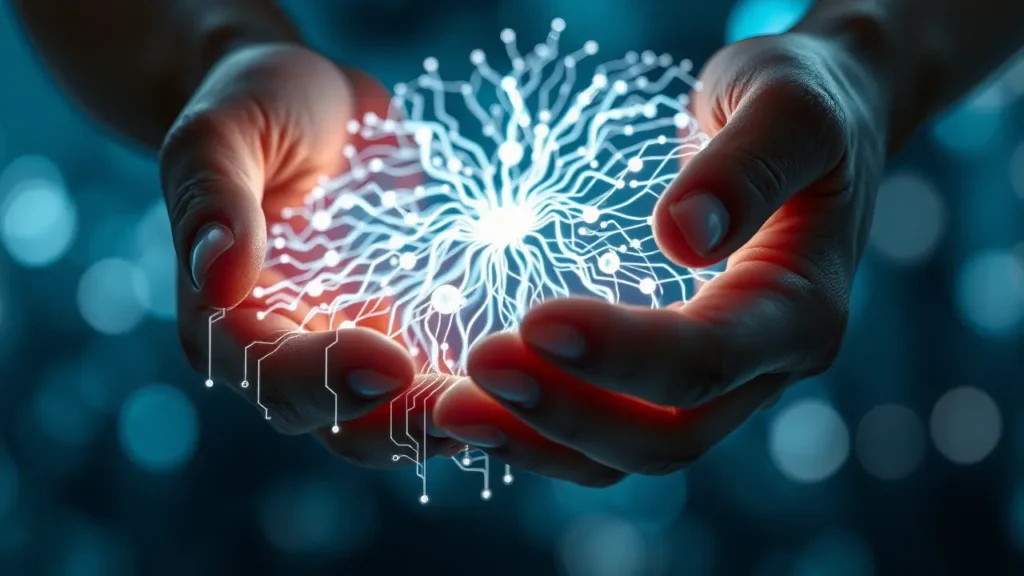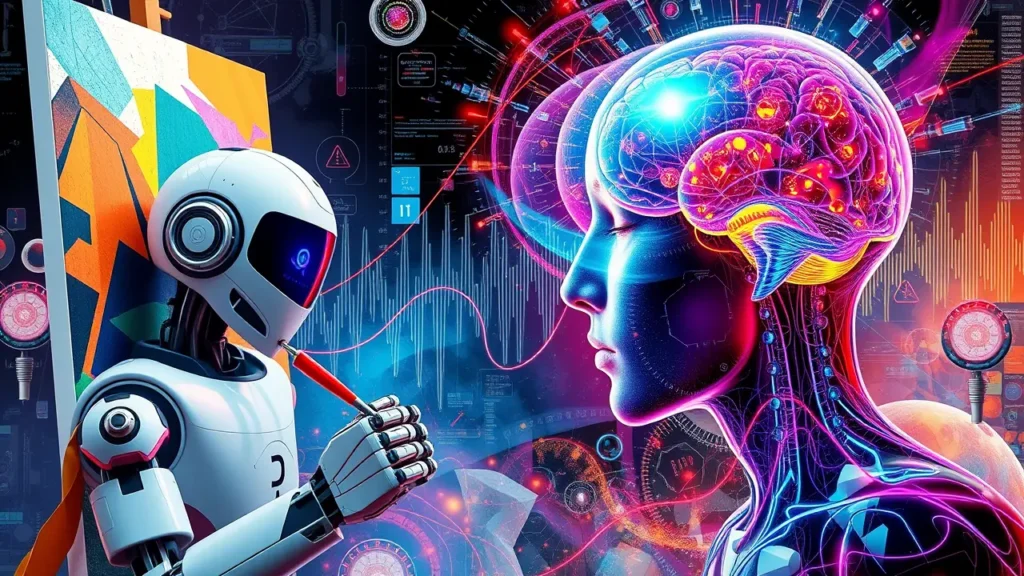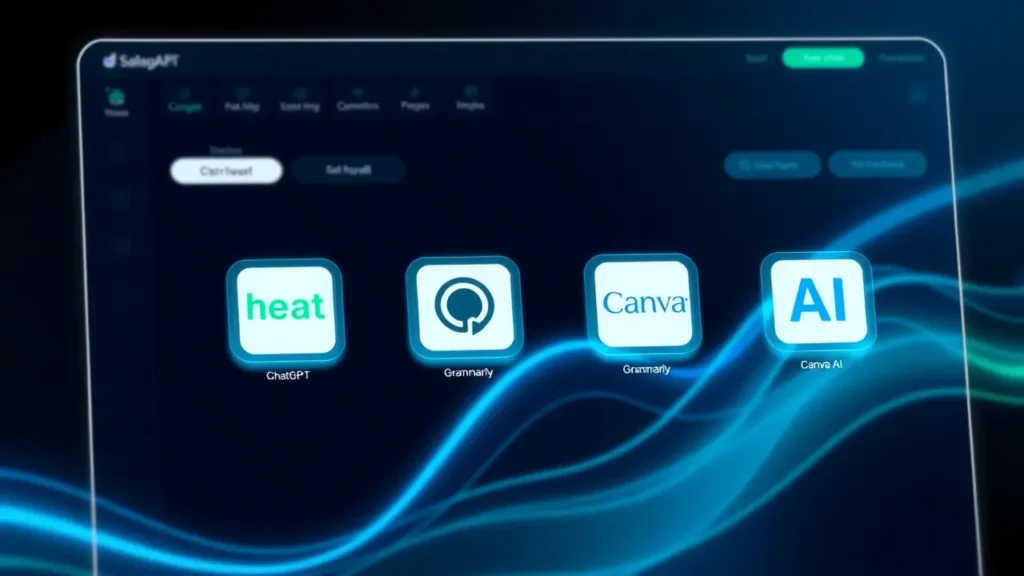Artificial Intelligence (AI) has become the driving force behind modern innovation, reshaping industries and empowering individuals to achieve more with less effort. From automating mundane tasks to generating creative masterpieces, AI tools are transforming how we approach work, creativity, and problem-solving. But beyond the headlines about ChatGPT and self-driving cars lies a world of hidden gems—mind-blowing applications, ethical dilemmas, and futuristic possibilities that will leave you awestruck.
In this article, we’ll explore the most exciting AI tools available today, uncover jaw-dropping facts you never knew, and discuss how these technologies are shaping the future. Whether you’re a business owner, marketer, developer, or content creator, this guide will help you understand the power of AI tools and how to leverage them effectively.
Table of Contents
What Are AI Tools?
AI tools are software applications powered by machine learning algorithms and advanced data processing capabilities. These tools mimic human intelligence, enabling them to perform tasks such as natural language processing, image recognition, predictive analytics, and decision-making. Unlike traditional software, AI tools learn from data and improve over time, making them adaptable and efficient.
From composing symphonies to detecting diseases through voice analysis, AI tools are proving that their potential is limitless. Let’s dive deeper into their applications and impact.

Mind-Blowing Facts About AI Tools
Before we explore practical applications, here are some surprising facts about AI tools that highlight their versatility and ingenuity:
1. The First AI Tool Dates Back to Ancient Greece
The Antikythera Mechanism , an ancient Greek analog computer, predicted astronomical positions and eclipses over 2,000 years ago. While not “AI” in the modern sense, it embodies the core principle of automating complex tasks—a precursor to today’s neural networks.
2. AI Can Compose Symphony Music
Tools like Amper Music and AIVA generate original symphonies and film scores indistinguishable from human creations. In 2020, an AI-generated piece was performed by the London Symphony Orchestra, leaving audiences stunned.
3. AI Detects Diseases Through Your Voice
Startups like Sonde Health use AI to analyze vocal biomarkers—subtle changes in pitch, tone, or cadence—to diagnose conditions like Parkinson’s, depression, and even heart disease. A 2022 study found that AI could identify COVID-19 patients with 89% accuracy based on cough recordings.
4. AI Fights Wildlife Poaching
Tools like PAWS (Protection Assistant for Wildlife Security) predict poacher movements using historical data and terrain analysis. In Cambodia’s Srepok Wildlife Sanctuary, PAWS reduced illegal activity by 50%.
5. AI Generates Hyper-Realistic Fake People
Platforms like Generated Photos and This Person Does Not Exist create lifelike human faces using Generative Adversarial Networks (GANs). While useful for advertising, these tools also raise concerns about deepfakes and misinformation.
6. The Smallest AI Tool Is Smaller Than a Grain of Rice
Researchers at MIT developed a neural network smaller than a grain of sand, capable of processing video and audio. These micro-AI chips could revolutionize wearable tech and IoT devices.

Best AI Tools Across Categories
AI tools cater to a wide range of needs, from content creation to business automation. Here are some of the top tools in various categories:
1. Content Creation Tools
- ChatGPT : AI-powered chatbot for writing and research assistance.
- Grammarly : AI-driven grammar and spelling checker.
- Copy.ai : Generates marketing copies, blog posts, and ad campaigns.
- Canva AI : Enhances designs and creates professional visuals.
- Writesonic : Assists with blogs, ads, and SEO content.
2. Business Productivity Tools
- Notion AI : Task manager and note-taking assistant.
- Zapier : Automates workflows by integrating apps.
- Otter.ai : Transcribes meetings and interviews in real-time.
- Monday.com AI : Streamlines project management and task automation.
3. Marketing and SEO Tools
- SEMrush AI : Keyword research and competitor analysis.
- Jasper AI : Copywriting tool for social media and advertising.
- Surfer SEO : On-page SEO optimization.
- MarketMuse : Content optimization for better search rankings.
4. Image and Video Editing Tools
- DALL·E : Generates stunning, AI-created images from text prompts.
- Runway ML : Offers AI-powered video editing features like object removal, green screen replacement, and style transfer.
- Deep Dream Generator : Transforms photos into surreal, dream-like artwork using neural networks.
- Lumen5 : Converts blog posts or scripts into engaging video content with AI-driven automation.
- Synthesia AI : Creates videos with virtual avatars, eliminating the need for human actors or cameras.
- Piktochart AI : Simplifies infographic creation with AI-driven templates and design suggestions.
- Sora AI : A cutting-edge tool that automates video production by generating dynamic visuals, animations, and transitions based on user inputs. It’s perfect for marketers and content creators looking to streamline video workflows.

How AI Tools Are Transforming Industries
AI tools are revolutionizing industries by driving efficiency, innovation, and accessibility. From healthcare to entertainment, these technologies are reshaping how we work and live. Let’s explore their impact across key sectors:
1. Healthcare: Faster Diagnosis, Better Outcomes
professionals leverage AI for faster diagnoses and personalized treatments. For example, doctors input patient data into platforms like IBM Watson Health to detect diseases early. Similarly, tools like Sonde Health analyze vocal patterns to identify conditions such as depression or Parkinson’s. By mastering how to use AI tools , healthcare providers can improve accuracy and save lives.
2. Education: Personalized Learning
AI tailors learning experiences to individual needs. Platforms like Duolingo adapt lessons based on student progress, while virtual tutors like Socratic guide learners through complex problems. Educators who embrace these tools can create more engaging and effective learning environments.
3. Finance: Smarter Decisions, Enhanced Security
The finance sector uses AI to enhance security and efficiency. Algorithmic trading platforms like Alpaca execute trades faster than humans, while fraud detection systems monitor transactions in real-time. Financial institutions that adopt how to use AI tools gain a competitive edge in decision-making and risk management.
4. E-commerce: Hyper-Personalization
AI personalizes shopping experiences. Recommendation engines suggest products based on user behavior, while chatbots provide instant customer support. Retailers who understand how to use AI tools see higher engagement and sales.
5. Manufacturing: Predictive Maintenance
In manufacturing, AI optimizes operations through predictive maintenance and quality control. Tools like GE Digital’s Predix monitor equipment performance, reducing downtime and costs. Learning how to use AI tools ensures consistent quality and efficiency.

Ethical Considerations in AI Development
As AI tools become more integrated into our daily lives, understanding how to use AI tools responsibly is critical. While these technologies offer immense benefits, they also raise important ethical concerns that must be addressed to ensure fairness, transparency, and accountability.
1.Bias in AI algorithms
One pressing concern is algorithmic bias . Many AI systems are trained on historical data, which can reflect societal prejudices. For instance, facial recognition technologies and hiring algorithms have been shown to disadvantage certain groups. Developers and organizations must prioritize diverse datasets and regularly audit AI models to ensure equitable outcomes.
2. Data privacy concerns
Data privacy is another critical issue. AI systems often rely on vast amounts of personal information, raising concerns about misuse or breaches. Implementing robust security measures and adhering to regulations like GDPR is essential to safeguard user data. Transparency in how decisions are made by AI systems can also build trust and foster responsible adoption.
3. Misinformation risks
The rise of AI-generated misinformation adds another layer of complexity. Tools capable of creating deepfakes or automating content can spread false narratives, undermining trust in media and institutions. Educating users and implementing safeguards can help mitigate these risks.
4. Job displacement
Finally, there’s the challenge of job displacement . Automation powered by AI has the potential to replace certain roles, particularly in manufacturing and administrative fields. Investing in workforce reskilling and thoughtful policy-making is crucial to ensure that technological progress benefits everyone.

By addressing these ethical considerations, we can harness the power of AI responsibly. Striking a balance between innovation and accountability will ensure that AI serves as a force for good, enhancing lives without compromising values.
The Future of AI Tools
The future of AI tools is brimming with possibilities, promising even greater innovation and efficiency. Advancements in AI integration with IoT will enable smarter homes, cities, and devices, automating everyday tasks seamlessly. AI-driven cybersecurity systems will detect and neutralize threats in real-time, safeguarding sensitive data more effectively.
Personalized AI assistants will evolve into intuitive virtual companions, anticipating needs and offering proactive support. Meanwhile, the fusion of quantum computing and AI will unlock unprecedented processing power, solving complex problems in seconds.
Industries like healthcare, education, and entertainment will see transformative breakthroughs, from hyper-personalized treatments to immersive creative experiences. However, as these tools advance, ethical considerations around transparency, bias, and privacy must remain at the forefront.
By embracing responsible development, the future of AI tools holds the potential to reshape our world for the better—enhancing productivity, creativity, and human connection.
1. What are AI tools, and how do they work?
AI tools are software applications powered by artificial intelligence that perform tasks requiring human-like intelligence, such as natural language processing, image recognition, or data analysis. These tools use machine learning algorithms to learn from data and improve over time, enabling them to automate workflows, generate content, or provide actionable insights.
Can AI tools replace human jobs?
While AI tools can automate repetitive tasks, they’re more likely to augment human capabilities than fully replace jobs. For example, AI can handle data analysis or customer support queries, freeing humans to focus on creative or strategic work. However, reskilling may be necessary for roles heavily impacted by automation.
How can businesses benefit from AI tools?
Businesses can leverage AI tools to streamline operations, enhance customer experiences, and make data-driven decisions. For instance:
Automation : Tools like Zapier automate repetitive tasks.
Marketing : Platforms like Jasper AI generate engaging content.
Customer Support : Chatbots provide 24/7 assistance, improving satisfaction rates.
Can AI tools help with personal projects?
Absolutely! AI tools are versatile and can assist with everything from organizing tasks (Notion AI ) to creating art (DALL·E ) or learning new skills (Duolingo ). They’re perfect for boosting productivity and creativity in personal projects.
Do AI tools require coding knowledge?
No, most AI tools today are no-code or low-code platforms, meaning you don’t need programming skills to use them. However, for advanced customization (e.g., building custom AI models), some coding knowledge may be helpful.
You can also check: Chat GPT Down: Why DeepSick Wins in 2025
Conclusion
AI tools are reshaping the way we work, create, and innovate. From generating symphonies to fighting wildlife poaching, these technologies are proving that their potential is limitless. By understanding their applications and addressing ethical concerns, we can harness the power of AI responsibly and effectively.
Are you ready to embrace the AI revolution? Share your thoughts in the comments below, and don’t forget to subscribe for more insights into the future of technology!

Pingback: Chat GPT Down: DeepSick Wins? Battle of AI Supremacy in2025